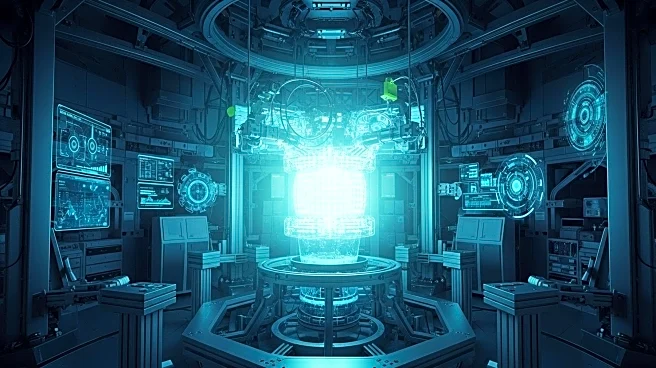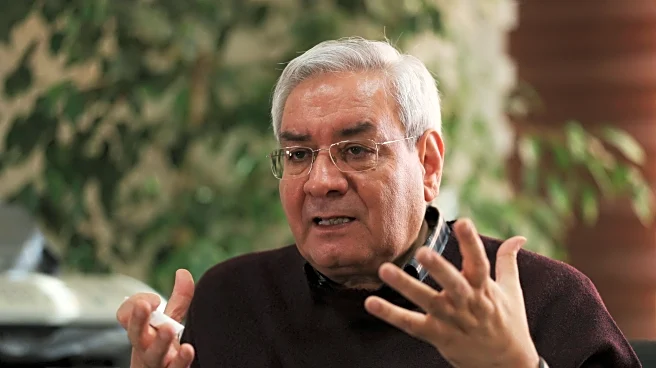What is the story about?
What's Happening?
US Energy Secretary Chris Wright has expressed optimism about the future of nuclear fusion as a major energy source, predicting that it will power electricity grids globally within eight to 15 years. In an interview with the BBC, Wright highlighted the role of artificial intelligence and advancements in national labs and private companies in the United States in accelerating the development of fusion technology. Despite skepticism from some scientists about the timeline, Wright believes that nuclear fusion will significantly contribute to reducing greenhouse gas emissions. He also reiterated concerns about Europe's reliance on Chinese renewable technologies and advocated for lifting the UK's fracking ban.
Why It's Important?
The potential of nuclear fusion as a clean and virtually limitless energy source could revolutionize the global energy landscape, reducing dependence on fossil fuels and significantly lowering carbon emissions. Wright's predictions, if realized, could have profound implications for energy policy, economic growth, and environmental sustainability. However, the skepticism from the scientific community highlights the challenges and uncertainties associated with achieving commercial fusion power. The US administration's stance on fracking and renewable energy subsidies also reflects broader debates about energy independence and economic priorities.
What's Next?
The development of nuclear fusion technology will continue to be a focus for research and investment, with potential breakthroughs influencing energy policies worldwide. The US administration's energy strategies, including its approach to fracking and renewable energy subsidies, will likely evolve in response to technological advancements and geopolitical considerations. The international community will be watching closely to see how these developments impact global energy markets and climate change efforts.















